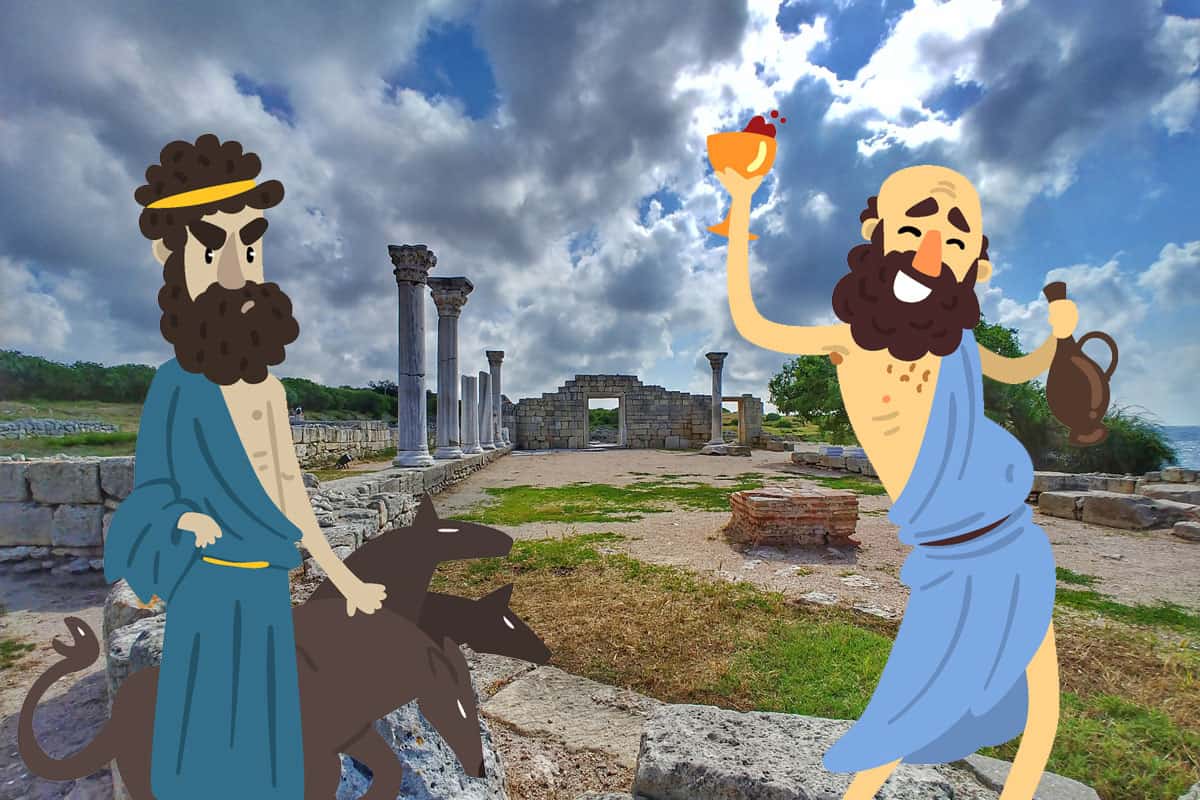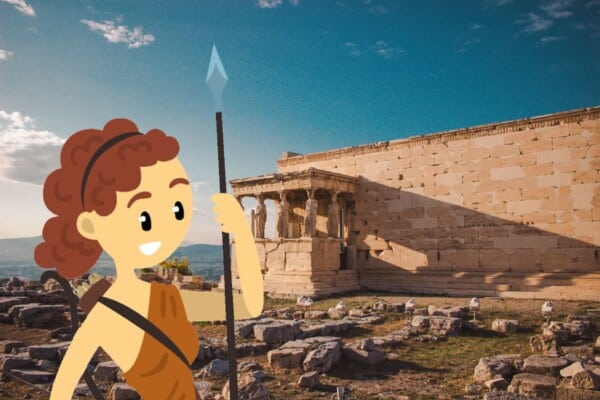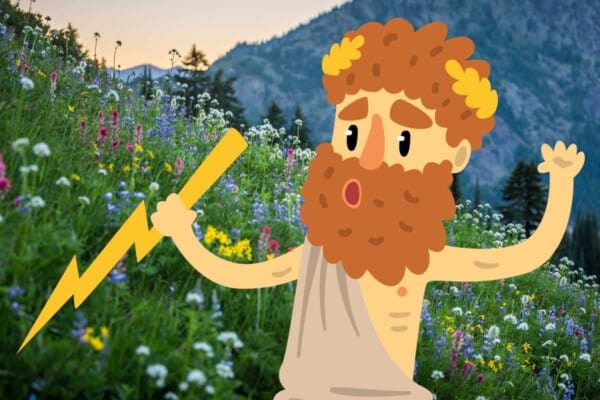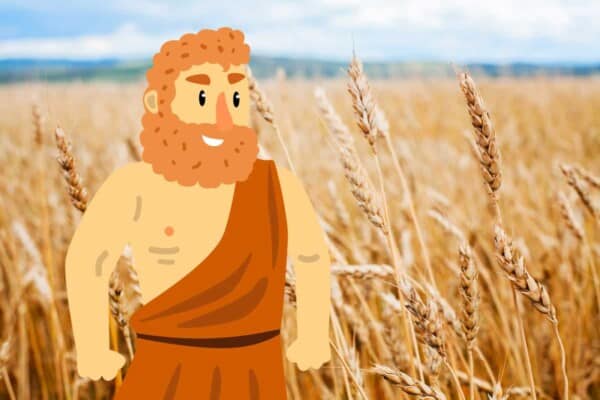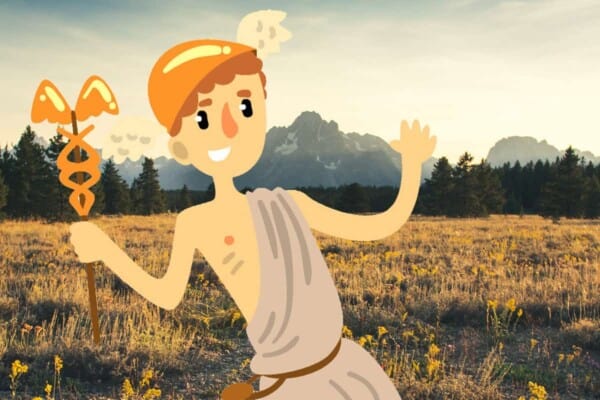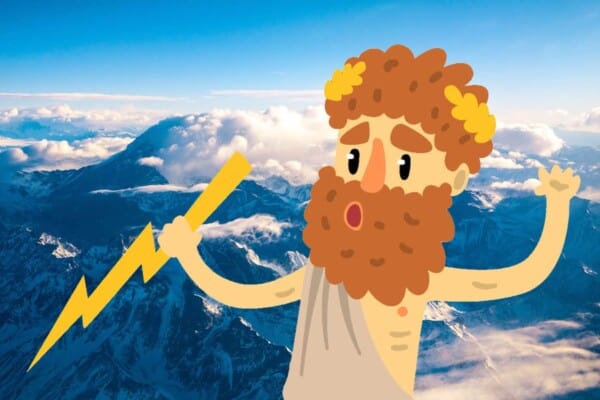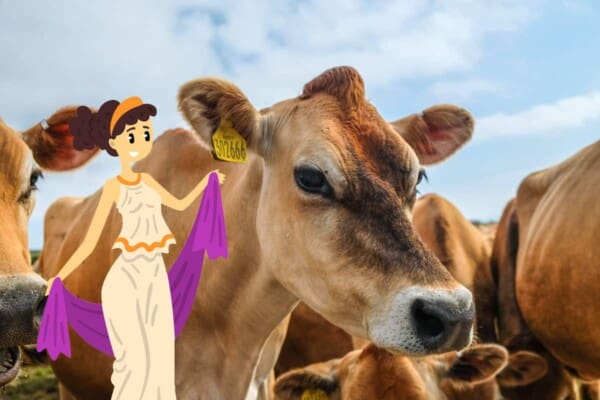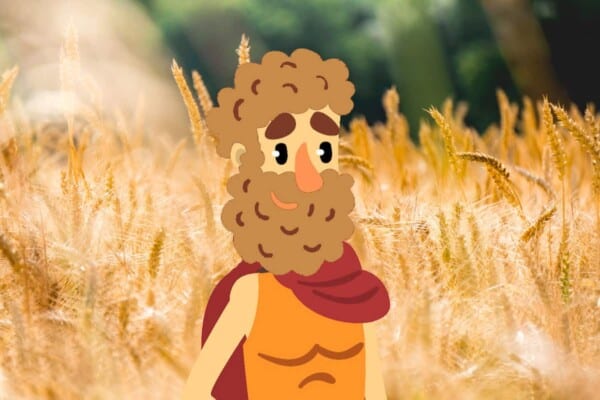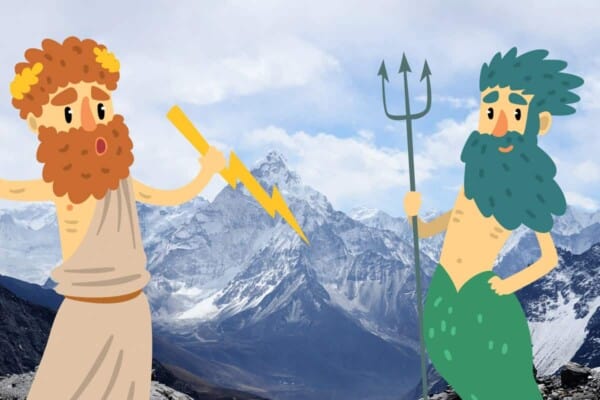Ancient Greek myth is pretty interesting – so cool that the Romans more or less copied the main parts! It’s filled with wild stories ranging from the silly to the heartbreaking. There are fourteen ‘main’ gods (twelve Olympians, plus Hades and Hestia), but there are hundreds – if not thousands! – more when you include primordial gods, demigods, and other creatures.
What follows is our attempt to classify which of the gods and goddesses were the coolest of them all. You’ll recognize some of the names on the list, but some of them might surprise you!
The Coolest Greek Gods and Goddesses
Athena (Roman name: Minerva)
Athena is one of the Twelve Olympians and one of the most known goddesses in Greek myth – after all, it’s from her that the city of Athens takes its name! Athena is most known as the goddess of wisdom, but she’s also responsible for several other areas. These include urban arts like weaving and also strategic military warfare!
Athena’s story was exciting from the very beginning. Her father, Zeus, swallowed her mother Metis whole. Metis’s pregnancy continued, and as a result, Athena was born fully-grown and clad in armor from Zeus’s own forehead!
She ended up the patron goddess of Athens over her uncle, the sea-god Poseidon, thanks to a competition. Poseidon made a miraculous saltwater spring appear, but Athena bested him by bringing the first olive tree to the people, sprouting ready to harvest at the top of a hill.
Athena was also helpful in the adventure of several heroes, offering her protection and aid to Perseus, Heracles, Jason, and Odysseus – an impressive resume! She is also said to have fought on the front lines on the Greek side of the Trojan War, directly against her brother, Ares.
Nowadays, her owl and her olive tree are synonymous with wisdom.
Persephone (Also Kore, Roman name: Proserpina)
Persephone is a favorite for modern classicists! She’s the daughter of Demeter (the goddess of grain and harvest), and either a mortal or Zeus is her father. She’s most well known for her abduction (or elopement) with Hades, King of the Underworld.
Persephone was a goddess of Spring and flowers, and she was taken to the Underworld to be Hades’ bride. She ate six pomegranate seeds, which bound her to his realm. Zeus brokered an agreement with her furious mother – Persephone would spend six months of the year in Olympus, and the other six with her husband in the Underworld, one for each seed.
Winter comes when Persephone is in the Underworld, and the plants and flowers only return to the earth when she returns to its surface.
The main reason that Persephone makes this list, though, isn’t her abduction, but what happened after. More than any other goddess in Greek myth, she was always portrayed as her husband’s equal. In the Underworld, she ruled by his side as Queen. Though there are some stories of affairs and illegitimate children, Persephone so captivated the underworld god that theirs was one of the happiest and most faithful marriages in the lore.
Hades (Roman name: Pluto)
We couldn’t make a list of cool gods without including the King of the Underworld and God of the Dead! One of the three original Olympian brothers who defeated the Titans, Hades was given the Underworld while his brothers took the sea and sky as their realms.
Hades ruled Tartarus and judged souls delivered by Thanatos, Hermes, or on the River Styx by Charon. Only the purest souls ended up in Elysium, and it was Hades’ job to decide which was which. In Asphodel, souls lost all identity by drinking the waters of Lethe.
He sat on a throne made of black ebony with his Queen on one side and his three-headed dog, Cerberus, on the other. He rode in a golden chariot which was pulled by four black sometimes-winged horses when he did need to travel.
He was considered so threatening that he was at the forefront of very few myths. Instead, he was the ending, where punishments were devised for the fallen. Some of his most famous punishments include Sisyphus, cursed to push a boulder uphill for all eternity, and Tantalus, who was eternally in reach of food and water but never able to eat or drink.
Hermes (Roman name: Mercury)
He’s known as the messenger god, but he was much more than that! One of the twelve Olympians and a son of Zeus, Hermes, was perhaps the most versatile of the gods. As well as travelers, messengers, and merchants, he also served as the god of athletics, literature, and thievery, invented mathematics, the alphabet, and astronomy, and also served as a psychopomp (soul-carrier) for Hades!
As if this wasn’t enough, the slippery god is involved in several different myths. He is said to have tricked the god Apollo into forgiving him for the theft of fifty cows by gifting him a lyre – when Hermes was only half a day old! Hermes also negotiated with Hades for Persephone, helped Achilles and Odysseus, and saved an infant Dionysus from death at a jealous Hera’s hands.
Hermes is also generally portrayed as the wittiest and easy-going of the gods, younger than the rest and faster than any. Rather than playing a direct role, he served whatever cause he thought just and made his influence felt throughout most of Greek lore. He also sometimes disguised himself as a human companion to Zeus when he visited earth and the mortals.
Dionysus (Roman name: Bacchus)
A half-mortal god of wine and revelry, and a later member of the Olympians, he took his seat from Hestia, Goddess of the Hearth. Dionysus was known as an easy-going god, raised by Zeus and Hermes after Hera caused the death of his mortal mother, Semele. Dionysus wasn’t happy with that. As an adult, he brought Semele back from the Underworld as a minor goddess, Thyone.
As well as parties and wine, he was a fertility god. He was also the patron of drama and theatre, especially in Athens!
One of Dionysus’s most famous myths is when he tried to reward Midas, a king who had aided one of the followers of the wine god. Midas wished that everything he touched would turn to gold. Unfortunately, Dionysus took this a little too literally. The ‘blessing’ backfired as Midas’s food, water, and everything else turned into metal!
Dionysus was also known for causing religious fervour in those who would not accept his divinity, creating worship through music and parties – and taking vengeance if it didn’t work. King Pentheus, who refused to worship him, ended up torn limb from limb by his own people due to Dionysus’s trickery.
Nyx (Roman name: Nox)
Nyx was the goddess of and personification of the night itself. She was a primordial goddess, born from Chaos itself long before the Titans or the Olympians came to power. She is the progenitor of many different important gods, goddesses, and nymphs in Greek lore.
Amongst her daughters, she includes Eris, the goddess of strife and discord; Nemesis, the goddess of vengeance, and the three Fates who could see all that is, was, and would be. Nyx’s sons include Thanatos and Hypnos, the twin gods of death and sleep, and Geras, the god of old age. She had many other children, each of whom was responsible for some huge part of life and creation.
Her primordial brother Erebus was also her consort. From him, she produced the child who started the world as we know it – their son, Aether, the god of and personification of the daytime and of the air the gods would breathe.
She is so powerful and beautiful that even Zeus himself fears her.
Nyx was a contradictory figure, simultaneously gloomy and angry while also nurturing and maternal – in other words, she embodied the mystery of the night.
Artemis (Roman name: Diana)
Artemis was the goddess of the moon and the hunt, the daughter of Zeus and Leto. She had a mythical power over the sea, even though it was the realm of her Uncle Poseidon due to her lunar nature. Her twin brother, Apollo, was a sun god. She was associated with silver, where he was with gold.
Though she was a hunter, Artemis abhorred waste and would take revenge on anyone who killed more than they needed. She took vows never to lie with men and spent all of the time in the company of her female nymphs and followers who had made similar promises.
As well as birds, the most sacred animals associated with Artemis were the lion, bear, and wolf. She would often use wolves in her bids for vengeance against mortals who had wronged her or otherwise hurt nature.
She was protective of her attendants and her mother. Several stories have her easily outmatching and killing great threats such as the giant known as Tityus with her bow. She killed Tityus in cold revenge after he tried to rape her mother.
Final Thoughts
The Greek gods and goddesses came in all shapes and sizes. These 7 are certainly well placed to claim to be the coolest that can be found within the Greek myths.
If you want to dive more into some of these characters can I suggest these deep dives on both Hermes and Athena.
Thanks for taking the time to read this article and if you have any comments then feel free to write them below.

